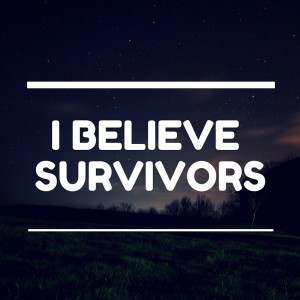Mariel DiDato, NJ, USA, SSH Blog Correspondent
 Recently, I was out with a friend for a night on the town. When the night was over, we were waiting for our ride home on the sidewalk outside of our favorite late-night food spot. We happened to overhear a conversation between three men standing near us on the sidewalk. They were discussing a rape case, and talking about how “the girl was definitely lying about the rape.”
Recently, I was out with a friend for a night on the town. When the night was over, we were waiting for our ride home on the sidewalk outside of our favorite late-night food spot. We happened to overhear a conversation between three men standing near us on the sidewalk. They were discussing a rape case, and talking about how “the girl was definitely lying about the rape.”
“Do you hear these guys?” I said to my friend.
“Seriously,” she replied, “Of course they think she lied.”
We began discussing about how normal sexual violence is for women. How some men think “no” means “convince me,” or how others think that rape can only be committed by a stranger in a dark alley.
My friend and I experienced that normalcy just that afternoon on the beach. A man had been staring at and following us up and down the shoreline. We were oblivious to this until two women sitting nearby let us know we had a stalker. They said they were calling him “The Hawk.” My friend and I walked back and forth a few times to test it out, and sure enough, we realized he was tailing our every move. The four of us laughed together about how creepy it was.
Perspective: we laughed about a potential predator following us. That’s how much we are used to this kind of behavior.
While my friend and I were discussing this on the sidewalk, a different man came up to us and scolded us for suggesting that sexual violence was normalized. I told him that he should listen to women when we talk about our experiences. Instead, he made a joke, and tried to convince us that we were overreacting.
“I volunteer with survivors of sexual assault,” I said. “I’m also a woman. I know what I’m talking about.”
“Yeah, of course you do,” he replied under his breath. As if I wasn’t to be trusted. As if I was lying just to win an argument with an irrelevant stranger. As if women regularly lie about how we’ve been attacked by men for the sake of spite. As if a man knows a woman’s experience better than a woman.
Why does this sound so familiar? Maybe it was because when Hollaback posted a video about a woman being catcalled in NYC, men told women that we are overreacting and that we should accept strange men’s compliments. Maybe it was because of #NotAllMen, where some (not all!) men become more upset about the semantics in women’s testimonies of violence than they do about the actual violence. Maybe it was because in the cases of Bill Cosby, Dr. Luke, Johnny Depp, and even in the random group of boys standing next to us on the sidewalk, there is always the assumption that the woman must be lying about her assault.
When women are upset about catcalling, we just need to lighten up and smile. When women are talking about how men abuse us, we are automatically condemning the entire gender. When women choose to report a highly under-reported crime, it must be because they have ulterior motives. The fact that only 2 to 8% of reports of sexual assault are false seems to be insufficient evidence for the majority of women who won’t be believed.
We’re just devious. We’re just emotional. We’re just overreacting.
This mistrust of women occurs at each stage of the violence pyramid. No matter what a woman’s complaints are, they‘re minimized or discounted by someone. It’s irritating, but relatively harmless, when it’s a drunken stranger on a sidewalk who tells me that I’m thinking incorrectly about my own experiences with violence. It’s another thing when a survivor’s report of sexual assault is met with disbelief, and even retaliation. It’s a systematic problem when not only friends and family, but judges and police officers, are more likely to think that a survivor is lying about being harassed or assaulted than they are to believe their story. I’ve seen both personally, and professionally. This has to stop.
If you’re reading this and saying, “Hey, wait! I listen to women, this article is unfair!” It’s not about you. Stop derailing the conversation, and listen.
If you hear a woman say she’s uncomfortable with catcalling, put yourself in her shoes. Walking down the street as a man and hearing a compliment is not the same as hearing a sexually-aggressive comment from someone that is, on average, 50 pounds larger than you. We’re not overreacting. You need to listen.
If you hear ANYONE talking about rape and you automatically assume that she or he is lying, you’re part of the problem. For their sake, and the sake of survivors everywhere, listen.
Take #ListenToUs to Twitter to share a time when your experience with sexual harassment or violence was minimized or not believed.
Mariel is a recent college graduate, feminist, and women’s rights activist. Currently, she volunteers for a number of different organizations, including the Planned Parenthood Action Fund of New Jersey and the New Jersey Coalition Against Sexual Assault. You can follow her on Twitter at @marieldidato or check out her personal blog, Fully Concentrated Feminism.
